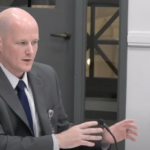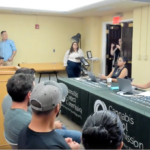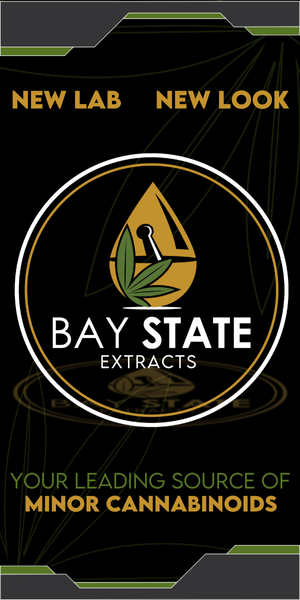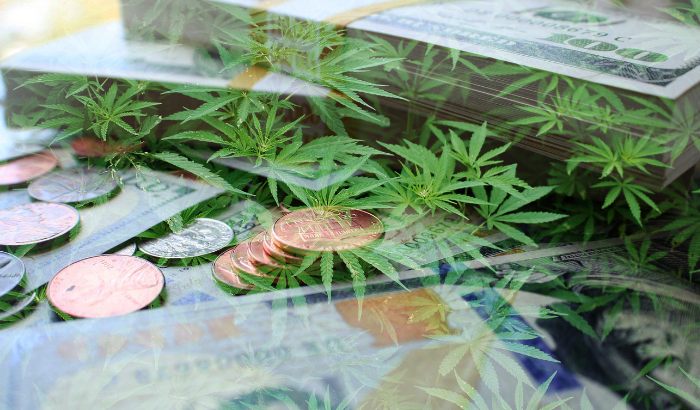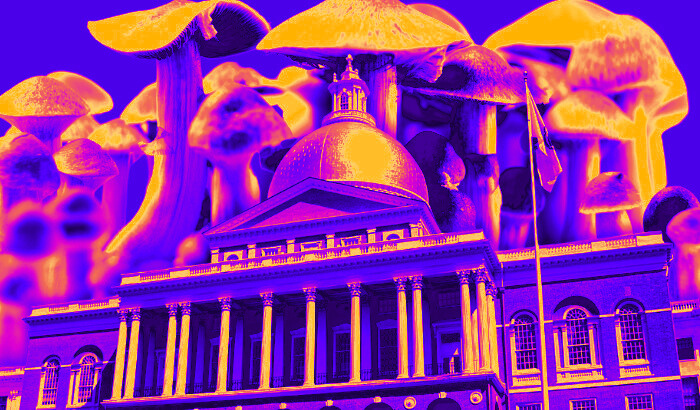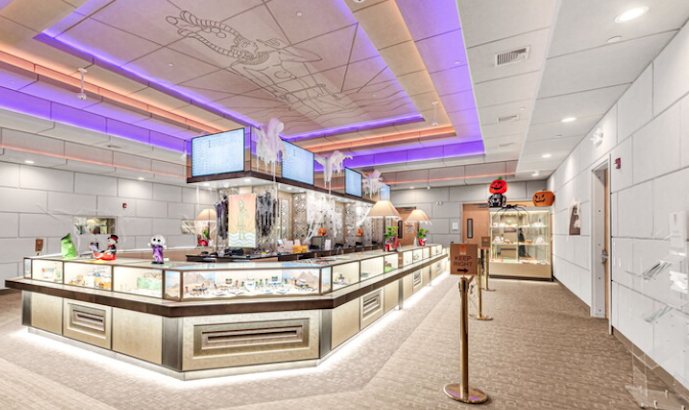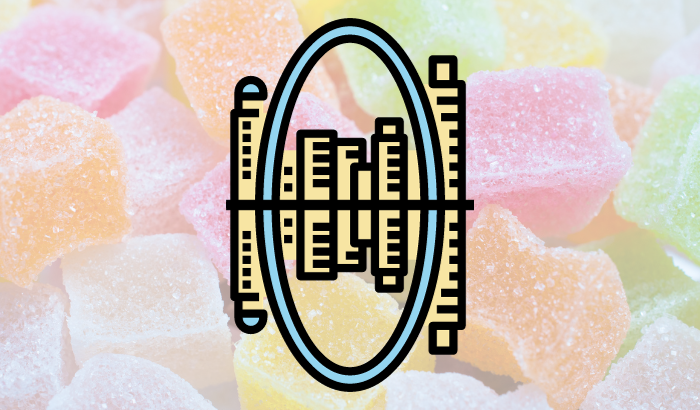
The St. Louis loophole: The question currently before the commission is whether or not Missouri regulators have the authority to prohibit licensed companies from infusing Missouri-grown marijuana products with hemp-derived THC
Of the few issues that are certain to summon debate in 2024, “hemp-derived,” “chemically modified,” “converted” cannabinoids—and untold intersecting science, commerce, and legal boiling hot potatoes—could create the most cacophony.
Our core team at Talking Joints Memo is working with experienced reporters and speaking with a range of experts for multiple upcoming stories on these topics. But for a clearer understanding of what’s coming to Massachusetts this year, one can start by looking at how the story is unfolding in other states—and how battles over hemp-derived THC are upending legal frameworks as well as multimillion-dollar gray markets.
The in-depth feature below from the Missouri Independent foreshadows the inevitable showdown in the Bay State between licensed cultivators and those selling hemp products that actually get you stoned via a dubious loophole at corner markets and, increasingly, liquor and health food stores. -TJM Editor Chris Faraone
Missouri’s crackdown on a cannabis company accused of illegally importing THC concentrate could lead to a showdown over the state’s authority to regulate the industry.
Delta Extraction had its license to manufacture cannabis products revoked in November, months after a massive recall pulled more than 60,000 products off the shelves — which the state says were illegally made with a hemp-derived THC concentrate imported from out of state.
As the legal battle continues to drag out, the company has upped the ante: If the state continues its efforts to sanction Delta and the recalled products, it will respond with litigation the company’s attorneys believe could gut Missouri’s marijuana regulations.
“Delta is also not limited to only challenging the [Department of Health and Senior Services’] authority to regulate hemp-derived products,” Delta’s attorney Chuck Hatfield, wrote in a Nov. 15 letter to the state. “Any lawsuit will likely include claims relating to the department’s regulatory authority in other areas of the marijuana industry.”
On the outside, the company with 20 employees located at the end of a dusty farm road near Pacific seems an unlikely candidate for upending Missouri’s regulatory framework.
But behind the scenes, Delta’s owners and associates include some of the most influential players in Missouri cannabis.
From its ownership group — which hosted Missouri Attorney General Andrew Bailey at a Ladue fundraiser just two weeks after his office took over defending the state in Delta’s litigation — to the powerful lobbyists and attorneys enlisted to represent the company and its affiliates, Delta is anything but an underdog.
State Sen. Nick Schroer, a Republican from O’Fallon who chairs the legislative committee that oversees Missouri’s marijuana rules, said Delta hired the “big guns” to win its license back — including longtime Jefferson City attorneys Hatfield, a Democrat, and Lowell Pearson, a Republican.
“That’s where I think this is a very interesting issue because it’s not necessarily political,” Schroer said. “It impacts all the parties, all individuals across the state, from veterans to people that just like to smoke recreationally and so many others in between.”
In order to reach a settlement with state regulators, Delta was willing to admit that it “failed to strictly comply with regulatory requirements,” according to Hatfield’s letter.
However, the company won’t admit that it did something wrong when it imported a hemp-derived THC concentrate, Hatfield said, because hemp is not a federally controlled substance.
Lisa Cox, the department’s spokeswoman, said Delta Extraction’s license was revoked for “numerous violations of rules, including extensive failure to comply with seed-to-sale tracking requirements.”
Cox also said the company “was not permitted to use THC in its products unless that THC was created from cannabis grown by a licensed cultivation facility.”
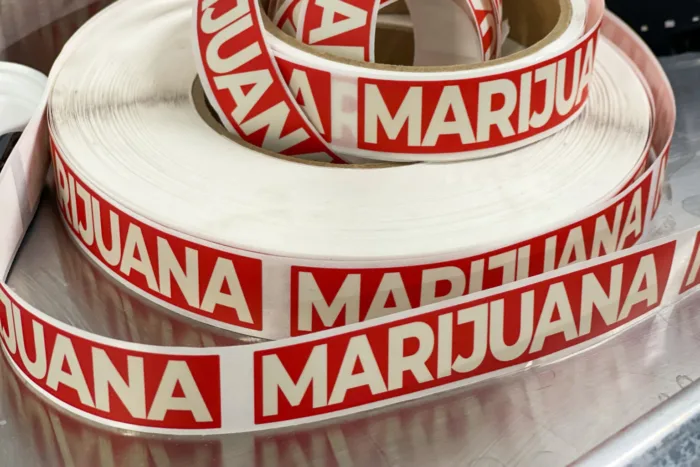
A question for the courts
At the center of Missouri’s massive marijuana recall is a THC concentrate, or distillate, made partially from hemp.
Delta bought oil from a Florida lab containing THC-A extracted from the hemp plant. Once the oil was in Missouri, the company heated it through a decarboxylation process — which turns it into Delta-9 THC, the cannabinoid most commonly known for producing a high.
Buying hemp-derived THC-A from Florida is much cheaper than producing it from Missouri marijuana.
While hemp is federally legal, state regulators argue that once hemp-derived THC comes into the marijuana realm, they can regulate it.
The Missouri constitution “expressly requires all marijuana and marijuana-infused products sold in Missouri to be cultivated or manufactured in Missouri,” the department argued in a Dec. 4 document in the Delta’s appeal of the recall and license revocation before the Administrative Hearing Commission.
The question currently before the commission is whether or not Missouri regulators have the authority to prohibit licensed companies from infusing Missouri-grown marijuana products with hemp-derived THC.
The commissioner overseeing the case, Carole Iles, has already said in an Aug. 29 order that it’s illegal to add “hemp-derived chemically modified ‘converted’ cannabinoids” to marijuana products.
That’s why the fight will likely end up in court.
In September, a federal judge in Arkansas sided with hemp companies in granting a preliminary injunction on a state law aimed at regulating hemp-derived THC.
U.S. District Judge Billy Roy Wilson said if Arkansas wants to participate in the federal hemp program, then it can’t pick and choose which parts of the law it wants to follow.
“Clearly, under the 2018 Farm Bill, Arkansas can regulate hemp production and even ban it outright if it is so inclined,” the Sept. 7 ruling states. “The legislature seems to have tried to keep the parts of the program it likes (purely industrial uses) and eliminate the parts it doesn’t (human consumption).”
Hatfield said that’s what Missouri cannabis regulators are trying to do.
“The Division of Cannabis Regulation’s authority to regulate is limited to non-hemp marijuana and does not depend on whether it is used to make THC,” he states in the letter to the department.
Schroer said he’s heard from numerous marijuana businesses that are suffering from the recall, and he’s not sure the state’s decision to pull Delta’s license and thousands of products from the shelves was the right one. He believes voters wanted a marijuana program where all products were homegrown in Missouri.
“And arguably, was hemp part of that?” he said. “I think we’re gonna find out in the courts.”
Read the whole story at the Missouri Independent. This article is republished under the Creative Commons license. The Missouri Independent is a nonpartisan, nonprofit news organization covering state government, politics and policy.








